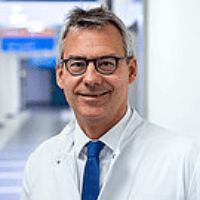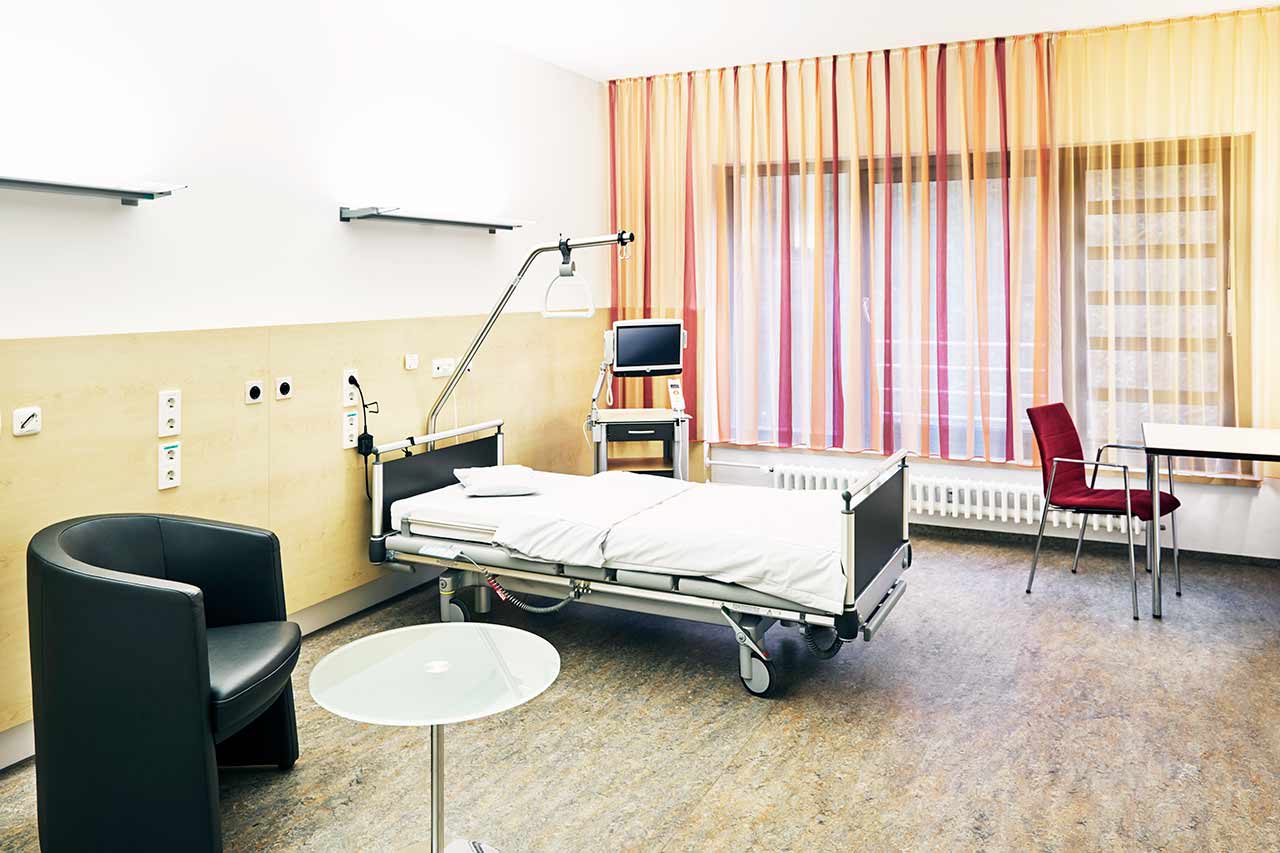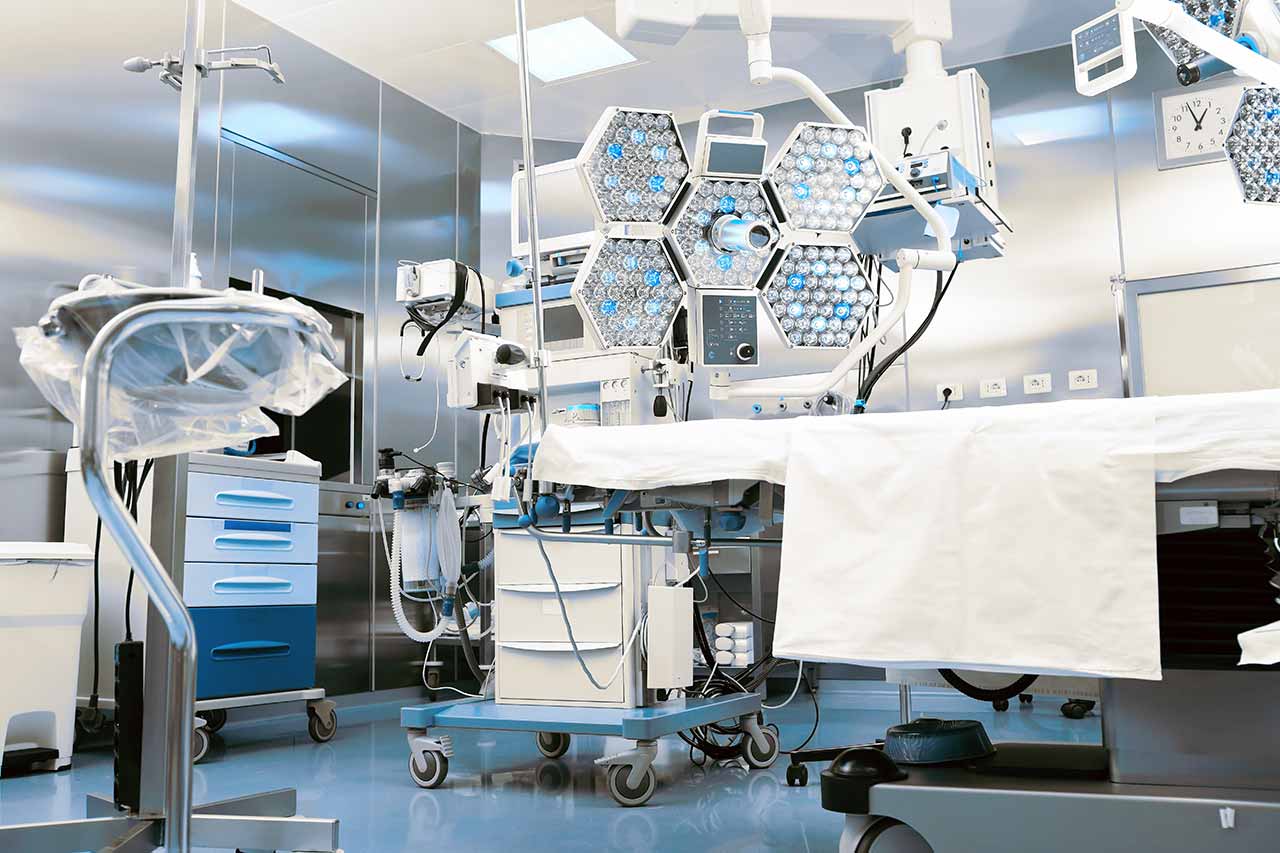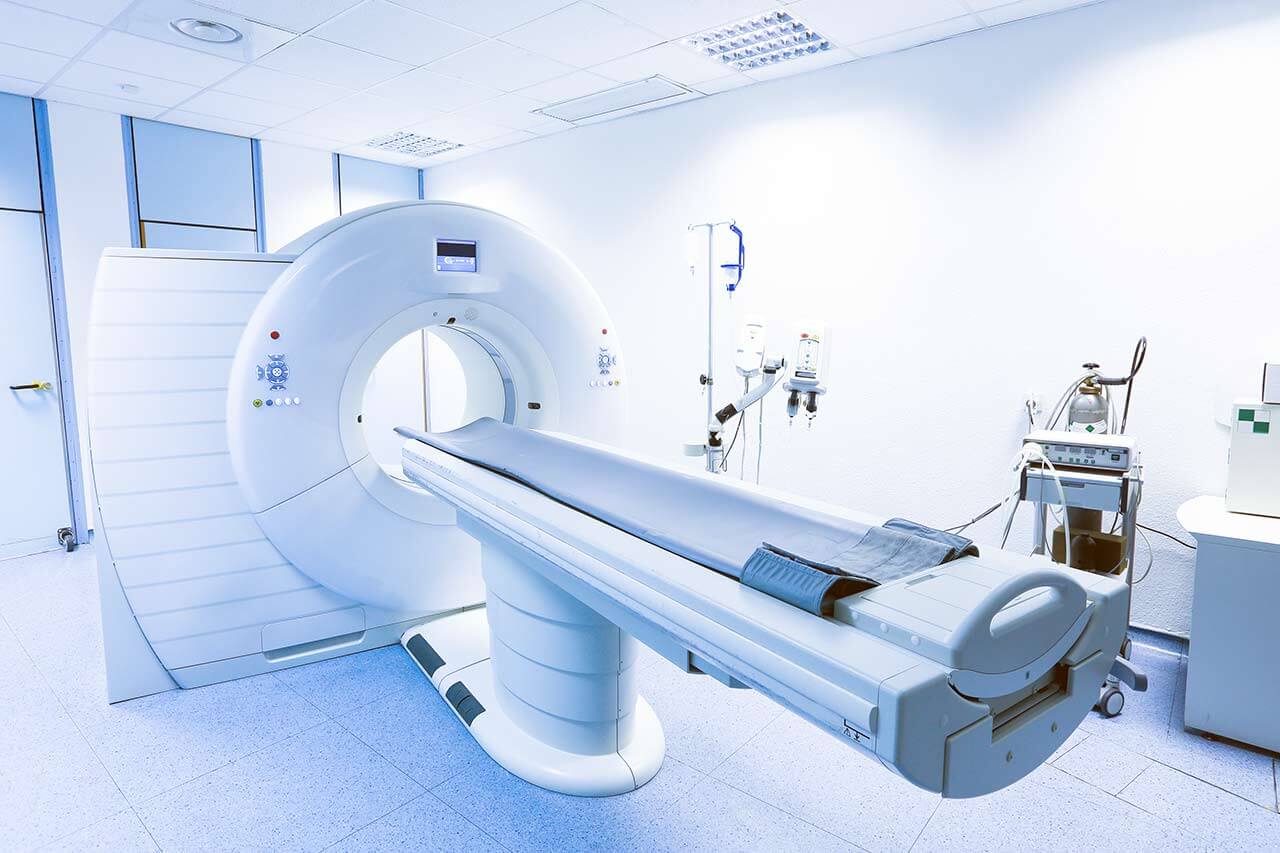
The program includes:
- Initial presentation in the clinic
- clinical history taking
- review of medical records
- physical examination
- laboratory tests:
- complete blood count
- biochemical analysis of blood
- mineral metabolism analysis (Na, K, Ca, Mg)
- lipid metabolism (HDL/LDL, cholesterol,
triglycerides Lip(a), homocysteine) - inflammation indicators (CRP, ESR)
- indicators blood coagulation
- blood gas analysis
- chest x-ray examination
- holter monitoring (24h)
- measurement of arterial blood pressure
- electrocardiogram (ECG)
- pulmonary function test
- echocardiography
- doppler echocardiography
- high-resolution computed tomography (HR-CT)/MRI (on indication 950/1200€)
- CT angiography (on indication 1350€)
- nursing services
- consultation of related specialists
- treatment by chief physician and all leading experts
- explanation of individual treatment plan
(the cost of medicines is not included)
Required documents
- Medical records
- ECG (if available)
Service
You may also book:
 BookingHealth Price from:
BookingHealth Price from:
About the department
The Department of Diagnostic and Interventional Cardiology at the Hospital Kassel offers the full range of medical services in the areas of its specialization. It provides high-precision invasive and non-invasive diagnostic tests, conservative and interventional treatment of various cardiovascular diseases. The department's clinical priority fields include medical care for patients with myocardial infarction, coronary heart disease, cardiac arrhythmias and heart valve diseases. In addition, the competence of the department's specialists includes the implantation of pacemakers, defibrillators, as well as cardiac resynchronization therapy. To provide emergency care to patients with acute coronary syndrome, the department has a specialized Chest Pain Unit, which operates around the clock. The unit is certified in accordance with the requirements of the German Cardiac Society, which confirms the impeccable quality of treatment. Despite the excellent medical and technical base of the department, the doctors are convinced that each patient needs an individual approach, support and understanding, and therefore the work of the team of cardiologists is also based on humanity and compassion. The department is headed by Prof. Dr. med. Rainer Gradaus.
In order to select the best treatment methods, the department's specialists need to comprehensively assess the patient's cardiovascular system. Such tests as stress and resting ECG, 24-hour Holter monitoring and 24-hour blood pressure measurement are the basis of cardiac diagnostics. In some cases, the results of these tests are sufficient for a cardiologist to make a diagnosis. Nevertheless, the specialists quite often have to resort to additional diagnostic methods, including pulmonary function testing and spiroergometry, 2D and 3D echocardiography, transthoracic echocardiography, transesophageal echocardiography, cardiac CT and MRI. In especially complex cases, the patient also requires interventional diagnostics using contrast agents – coronary angiography, fractional flow reserve measurement, optical coherence tomography, etc. The obtained diagnostic results serve as the basis for the elaboration of the most effective treatment regimen. The presence of advanced medical equipment in the department allows the doctors to treat many cardiac pathologies using interventional procedures, which do not require thoracotomy.
The department's specialists very often deal with the treatment of patients with cardiac arrhythmias, and therefore they have a wealth of experience in this field. The department has many effective catheter techniques for the treatment of arrhythmias. One of the most requested procedures is the implantation of a pacemaker. The department's specialists perform more than 350 such interventions annually. In most cases, the procedure is performed under local anesthesia. Depending on the individual clinical indications, single, double or triple chamber pacemakers can be used. The department implants the innovative pacemakers, with which patients can undergo MRI scanning in the future. It is noteworthy that the department's cardiologists also successfully implant the advanced MICRA pacemaker, which is 10 times smaller than a standard pacemaker. The innovative device looks like a tiny capsule. The main advantage of the technology is that there is no need to implant electrodes, which connect the pacemaker to the heart. The MICRA system attaches to the heart wall with tiny titanium handles and emits electrical impulses to the heart through a microdevice at the end of the pacemaker. The service life of such a pacemaker is 10 years. In addition to pacemakers, the department uses defibrillators and cardiac resynchronization therapy to treat heart rhythm disturbances.
Interventional treatment of heart valve disease is also of particular interest to the department's medical team. The focus is on patients with aortic valve stenosis and mitral insufficiency. /to treat aortic valve stenosis, the modern technique of transcatheter aortic valve implantation (TAVI) is used. This method is best suited for elderly patients with aortic valve stenosis, since traditional surgical repair of the pathology is associated with high risks to the life of such patients. Mitral valve insufficiency is treated using the MitraClip technique. The procedure is performed under general anesthesia. During the procedure, a catheter is inserted through a vein in the groin in order to provide access to the right atrium. When performing the procedure, the cardiologist punctures the atrial septum in the left atrium and delivers a MitraClip attached to the catheter. The device is precisely fixed under X-ray and ultrasound guidance. Upon the completion of all therapeutic manipulations, the catheter is removed from the atrium.
The department's range of surgical services includes:
- Diagnostics
- Non-invasive diagnostics
- Resting and stress ECG
- 24-hour Holter monitoring
- 24-hour blood pressure measurement
- Pulmonary function testing
- Spiroergometry
- 2D and 3D echocardiography
- Transthoracic echocardiography
- Transesophageal echocardiography
- Doppler echocardiography
- Cardiac CT
- Cardiac MRI
- Invasive diagnostics
- Coronary angiography
- Fractional flow reserve measurement
- Optical coherence tomography
- Myocardial biopsy
- Pericardiocentesis
- Non-invasive diagnostics
- Treatment
- Interventional therapeutic procedures
- Transluminal balloon angioplasty
- Balloon dilatation and stent implantation for stenosis
- High-frequency rotablation for dilatation or reopening of a coronary artery lumen
- Recanalization of chronic coronary artery occlusions
- Emergency interventional catheter treatment for myocardial infarction
- Interventional closure of foramen ovale
- Interventional closure of type II atrial septal defect
- Interventional closure of the left atrial appendage
- Implantation of pacemakers and defibrillators
- Cardiac resynchronization therapy
- Transcatheter aortic valve implantation (TAVI) for the treatment of aortic valve stenosis
- MitraClip technique for the treatment of mitral insufficiency
- Mitral valve annuloplasty using the innovative Carillon system
- Interventional therapeutic procedures
- Other diagnostic and treatment methods
Curriculum vitae
Since 2008, Prof. Dr. med. Rainer Gradaus has been heading the Department of Diagnostic and Interventional Cardiology at the Hospital Kassel. The specialist obtained his doctoral degree at the Westphalian Wilhelm University of Muenster. This was followed by internships at the hospitals in America. Upon returning to Muenster, Dr. Gradaus became a doctor at the University Hospital Muenster, where he underwent specialized training in Cardiology and Cardiac Intensive Care. In 2004, Prof. Rainer Gradaus had his habilitation. Four years later, he became an Extraordinary Professor at the Westphalian Wilhelm University of Muenster. In the same year, the doctor became a Member of the European Society of Cardiology.
Photo of the doctor: (c) Klinikum Kassel
About hospital
The Hospital Kassel is a progressive medical facility with a huge medical team, which provides high-quality medical services in all branches of modern medicine. The hospital is part of the regional medical Gesundheit Nordhessen Holding, which unites 5 top-class medical centers, including specialized rehabilitation clinics. With 1,281 beds, the hospital is known as the largest medical complex in the federal state of Hesse. The hospital has 32 specialized departments with highly qualified doctors and specially trained nursing staff in each department. The team of 3,200 employees takes care of the health of patients. The main value for each employee is the patient's health. The professional skills of the medical staff in combination with state-of-the-art medical and technical equipment of the hospital provide excellent opportunities for the treatment of patients with pathologies of any severity.
The hospital provides treatment to over 55,000 inpatients and about 140,000 outpatients every year. Medical care is provided to both German citizens and many patients from foreign countries. Such high rates are the evidence of excellent quality of medical services and the high credit of patients' trust.
The hospital has created a wonderful atmosphere, which contributes to the rapid recovery of patients. All diagnostic and therapeutic rooms, operating rooms, as well as patient rooms are designed taking into account modern standards of European medicine in order to ensure maximum comfort of each patient. All employees working in the hospital provide the patient with understanding and respect, as well as support him in every possible way during the entire therapeutic process.
The hospital successfully implements a quality management system. It uses its own quality management system implemented by the medical Gesundheit Nordhessen Holding, as well as the IQM (Initiative Qualitätsmedizin) monitoring system. As part of healthcare quality management, the hospital annually clearly provides reports on its clinical activities, the success of diagnostics, treatment, level of patient care, etc. Thus, the hospital stands for maximum openness in its work and makes every effort to maintain the highest level of quality of medical care.
Photo: (с) depositphotos
Accommodation in hospital
Patients rooms
The patients of the Hospital Kassel live in comfortable single, double and triple rooms. The patient rooms are made in a modern design and pastel colors. A standard patient room includes an automatically adjustable bed, a bedside table, a wardrobe, a table and chairs for receiving visitors, a TV and a telephone. The patient rooms have Wi-Fi. Each room has an ensuite bathroom with shower and toilet.
The hospital also offers enhanced-comfort patient rooms. Most of these rooms have a balcony. The bathroom additionally includes a hairdryer, towels and toiletries.
Meals and Menus
The patient and the accompanying person are offered tasty and balanced three meals a day. If for some reason you do not eat all foods, you will be offered an individual menu. Please inform the medical staff about your food preferences prior to treatment. The patients staying in enhanced-comfort rooms are provided with an individual menu every day.
The hospital also has several cafes where one can have a cup of tea or coffee, taste delicious pastries, salads, main hot dishes, pizza, etc.
Further details
Standard rooms include:
Religion
The religious services are available upon request.
Accompanying person
During the inpatient program, the accompanying person can live with the patient in a patient room or a hotel of his choice. Our managers will help you choose the most suitable option.
Hotel
During an outpatient program, the patient can stay at the hotel of his choice. Our managers will help you choose the most suitable option.





